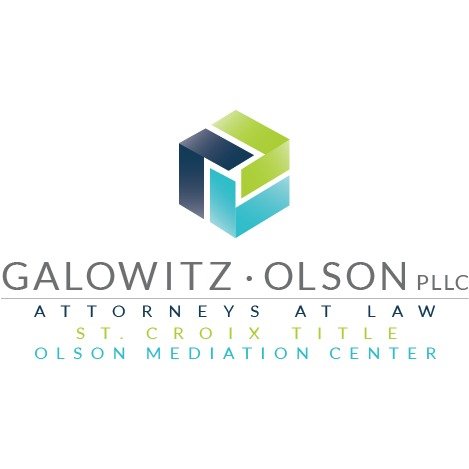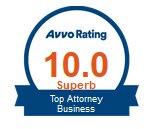Best Franchising Lawyers in Minnesota
Share your needs with us, get contacted by law firms.
Free. Takes 2 min.
Or refine your search by selecting a city:
List of the best lawyers in Minnesota, United States
About Franchising Law in Minnesota, United States
Franchising is a business model that allows one party (the franchisee) to use the trademark, systems, and business methods of another party (the franchisor) to operate a similar business in exchange for a fee. In Minnesota, the franchise industry is regulated both at the federal and state levels. The state of Minnesota pays close attention to franchising practices and has established specific statutes and rules to govern the offering and sale of franchises. These laws are designed to protect investors, promote fair competition, and ensure transparency between franchisors and franchisees. Anyone interested in entering into a franchise relationship in Minnesota must ensure compliance with both federal and local regulations.
Why You May Need a Lawyer
Legal guidance is often essential when dealing with franchising arrangements in Minnesota. Here are common scenarios where consulting a lawyer is beneficial:
- Reviewing and negotiating franchise agreements to ensure fair and clear terms.
- Understanding regulatory compliance with state and federal franchise disclosure laws.
- Handling disputes between franchisors and franchisees, including terminations or allegations of breach of contract.
- Registering a franchise with the state before offering it for sale, as required by Minnesota law.
- Advising on intellectual property, trademark, and operational issues unique to franchises.
- Assisting with purchases or sales of existing franchise units.
- Navigating advertising restrictions and proper business representations.
- Offering counsel regarding the renewal, transfer, or exit from a franchise.
- Handling franchisee rights under the Minnesota Franchise Act and addressing fraudulent activities.
A lawyer experienced in franchising can help you avoid costly mistakes and ensure your rights and interests are protected at every step.
Local Laws Overview
Minnesota has some of the most detailed franchise laws in the country. The primary statute governing franchising is the Minnesota Franchise Act (Minnesota Statutes Chapter 80C), which applies to the sale and operation of franchises within the state. Here are some key aspects of the local law:
- The Minnesota Department of Commerce regulates franchise registration and disclosure.
- Before selling a franchise in the state, franchisors must register their Franchise Disclosure Document (FDD) and the offering itself with the Department of Commerce.
- Minnesota law requires full disclosure of all material facts to potential franchisees so they can make informed investment decisions.
- There are specific provisions relating to the prohibition of unfair and inequitable franchise agreements, as well as prohibitions on misrepresentation.
- Franchisees are granted certain rights relating to transfers, terminations, and renewals that exceed federal minimums.
- The law provides remedies for franchisees in the event of fraud, misrepresentation, or violation of the statute by franchisors.
- There are both civil and criminal penalties for violation of franchise regulations in Minnesota.
It is important to fully understand these local requirements to protect your investment or ensure compliance as a franchisor.
Frequently Asked Questions
What is a franchise under Minnesota law?
A franchise is a business relationship where one party (franchisor) grants another (franchisee) the right to market products or services using its trademark or business system, subject to payment of a fee and significant control or assistance.
Do I need to register my franchise to operate or sell in Minnesota?
Yes. Franchisors must register with the Minnesota Department of Commerce and submit a Franchise Disclosure Document before offering or selling a franchise in the state. Some exceptions may apply but most offerings require registration.
What disclosures are required before I buy a franchise?
Franchisors must provide a prospective franchisee with a registered Franchise Disclosure Document detailing all material facts, including costs, obligations, litigation history, and financial performance, at least 14 days before signing any agreement or accepting payment.
What rights do franchisees have if there is a dispute?
Minnesota law provides franchisees with specific rights, including the ability to file civil lawsuits against franchisors for fraud or violations of statutory obligations and, in some cases, to claim damages or seek rescission of the agreement.
Can a franchisor terminate my franchise agreement at any time?
No. The Minnesota Franchise Act regulates how and when a franchisor can terminate or fail to renew an agreement. There must be "good cause" for termination, and the franchisee is usually entitled to written notice and an opportunity to cure breaches.
How can I make sure my franchise agreement is fair?
It is strongly recommended to have a specialized franchise attorney review the agreement. They can negotiate terms, explain your rights and obligations, and help you avoid unfavorable conditions hidden within the document.
Are there minimum investment requirements to buy a franchise?
While the state does not set a minimum investment, franchisors typically do. Make sure you understand all fees, ongoing royalty obligations, and total expected costs outlined in the Franchise Disclosure Document.
What happens if a franchisor makes false claims about their business?
Making false representations is prohibited. Franchisees may have the right to rescind the franchise agreement and pursue damages through private legal action or by filing a complaint with the Minnesota Department of Commerce.
What are my options if I want to sell or transfer my franchise?
Many franchise agreements limit or regulate transfers, but Minnesota law provides franchisees with certain rights regarding transfer or assignment. Legal advice is recommended to understand your options and obligations.
Who enforces franchise laws in Minnesota?
The Minnesota Department of Commerce is responsible for enforcing franchise regulations, reviewing registrations, addressing complaints, and taking enforcement actions against violators.
Additional Resources
If you need more information or wish to file a complaint, consider the following resources:
- Minnesota Department of Commerce - Franchise Registration and Enforcement Division
- Federal Trade Commission (FTC) Franchise Rule
- Small Business Administration (SBA) Minnesota District Office
- Minnesota State Bar Association - Business Law Section
- Local business development centers and SCORE offices
- Franchise trade associations and legal aid clinics for small businesses
Next Steps
If you are considering buying, selling, or operating a franchise in Minnesota, take the following steps to protect your interests:
- Conduct thorough research on the franchise and read the Franchise Disclosure Document carefully.
- Consult with a lawyer experienced in franchise law in Minnesota. They can review documents, explain legal requirements, and negotiate terms on your behalf.
- Check the Minnesota Department of Commerce website to verify the franchise's registration status and review any public enforcement actions or complaints.
- Gather and organize all relevant paperwork and correspondence.
- If issues arise, consider contacting the Department of Commerce or a legal professional to understand your remedies and options.
Taking a proactive and informed approach is the best way to navigate the complexities of franchise law in Minnesota. Always seek professional legal counsel at the earliest stage to avoid pitfalls and ensure compliance with all applicable regulations.
Lawzana helps you find the best lawyers and law firms in Minnesota through a curated and pre-screened list of qualified legal professionals. Our platform offers rankings and detailed profiles of attorneys and law firms, allowing you to compare based on practice areas, including Franchising, experience, and client feedback.
Each profile includes a description of the firm's areas of practice, client reviews, team members and partners, year of establishment, spoken languages, office locations, contact information, social media presence, and any published articles or resources. Most firms on our platform speak English and are experienced in both local and international legal matters.
Get a quote from top-rated law firms in Minnesota, United States — quickly, securely, and without unnecessary hassle.
Disclaimer:
The information provided on this page is for general informational purposes only and does not constitute legal advice. While we strive to ensure the accuracy and relevance of the content, legal information may change over time, and interpretations of the law can vary. You should always consult with a qualified legal professional for advice specific to your situation.
We disclaim all liability for actions taken or not taken based on the content of this page. If you believe any information is incorrect or outdated, please contact us, and we will review and update it where appropriate.
Browse franchising law firms by city in Minnesota
Refine your search by selecting a city.









